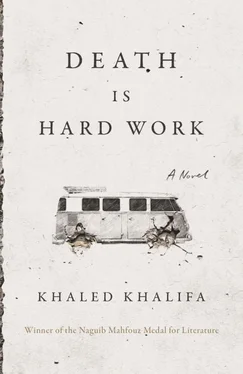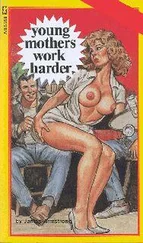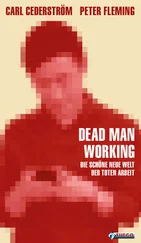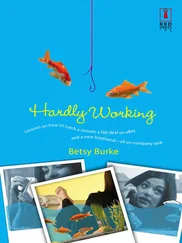Bolbol minimized his time in public. To get to work he took the special bus for public employees, and to get home in the evening he took the same route back—like so many others whose identity cards and official documents happened to list the names of various now burned-out towns under “Birthplace.” He abandoned his few remaining old habits, such as visiting a coffeehouse every Friday, or loafing around Bab Tuma. He cut short any burgeoning friendships with his colleagues; all they ever did together was repeat the same conversations about rising prices anyway… and by the time they started furtively discussing indications that they had gleaned which pointed to recent regime losses, using code words familiar to opposition sympathizers, Bolbol had already taken to ignoring them. He didn’t want to venture so much as an ambiguous comment—he simply acted as if he hadn’t heard anything at all and then returned to the subject of his pickling projects, grumbling about the rising price of eggplant.
Three months before the long drive to Anabiya, there was a knock on Bolbol’s door at dawn. Three young men came in, boys from the neighborhood, all armed, accompanied by a local official who treated Bolbol with something like contempt. They ignored all his questions and overturned everything in the house. Not even the big portrait of the president in the middle of the living room won him any favor. Bolbol was offended, but kept quiet. He’d already scoured his home of everything that might have caused him harm in this situation: purging each and every suspicious belonging and even canceling all the television channels that regime supporters considered “biased,” such as Al Jazeera and Al Arabiya, and filling his “Favorites” list with pro-regime channels: first came Al Manar and Al Mayadeen (the satellite channels run by Hezbollah), followed by Alalam from Iran, the Syrian News Channel, and then various other innocuous choices, like National Geographic, some food channels, and so forth. He’d gone over every inch of the place dozens of times to confirm to himself that the house was “clean.” He only wished he could change his ID number and his place of birth. Anyway, the soldiers searched the house carefully and left without apology, letting Bolbol drown in the chaos of his scattered possessions. They cursed him and his hometown, as usual, but Bolbol did his best to ignore it; he told himself they were just goading him into reacting so they had an excuse to kill him. Of course, if they shot him, his blood would be spilled for nothing. Defending himself against some mild abuse would hardly make him a martyr. When they were well and truly gone, he congratulated himself on successfully passing this thousandth security check. After this he gradually gained the qualified approval of his poverty-stricken neighbors, who likewise used to curse his birthplace loudly whenever he walked down the street. He had chosen to live in this poor neighborhood after his divorce from Hiyam; she had made it a condition that he leave all their furniture with her to pay off the balance of her dowry and in exchange for her raising their only son—another Abdel Latif. The boy had been named after his grandfather, as though to prove that Bolbol still had strong links to his family, in the absence of any other evidence.
Really, all of Bolbol’s behavior was an imitation of his father’s—an attempt to live longer in his shadow. That respected gentleman, weighted with idealism, lived in the past, a remnant of some dreamlike former age. His vocabulary and habits dated back to a different world and would not conform to standards of the present day. Bolbol’s father boasted of belonging to an era of “the greatest values and elegance,” as he called the sixties, adding that it had been quite lovely to boot. Bolbol often caught himself using the same flowery old words as his father. And he still remembered his father’s hysterical reaction when Hussein dismissed his precious 1960s as just a mirage—announcing that everything people said about those days was a lie that should finally be put to rest, and that those years were in fact the era of all the Muslim world’s defeats. His father had been furious for the rest of the day. That was probably the first time any member of the family had dared to contradict him or sully his sacrosanct memories.
As Abdel Latif had aged, he only became more attached to those memories of his youth, down to the tiniest details: a certain way of shining his shoes, a particularly elegant necktie, a way of speaking concisely and listening respectfully, making witty comments and telling anecdotes whenever his old friends were gathered. It was important to him to be charming, to hold a constructive and enjoyable salon. He considered his duties sacred, and the town of S never saw a funeral in which he wasn’t a participant. He remembered all his friends’ birthdays and other special occasions and shared the few supplies he was able to see brought in from Anabiya. According to his students, he was a strange man, though likewise a respected inhabitant of their town for more than forty years, who had arrived to teach in the school and soon became one of them. They originally called him the Anabiyan, in reference to his hometown, but everyone forgot this nickname with the passage of time, and he became, simply, Ustadh Abdel Latif.
Bolbol couldn’t get through to Hussein. He felt cold to his bones. There was no choice but to go alone to pick up his father. The sheer density of the checkpoints between him and the rendezvous point meant the length of the journey was out of his control, but he still managed to arrive at the appointed time. When he saw his father leaning on the wall of the abandoned gas station, Bolbol felt empty inside. His father was somewhat dazed and had lost a lot of weight; his face was haggard, his breath was foul, and it was clear that he hadn’t eaten for some days. Even so, he was clean-shaven, wore a tie, and his clothes were spotless.
Abdel Latif smiled when he saw Bolbol coming toward him. Bolbol squeezed his father’s hand. A group of armed young men appeared from nowhere, some of whom Bolbol recognized, and they all raised their hands in farewell to their comrade as they passed. Abdel Latif refused to lie down in the back seat of the taxi. Bolbol asked his father not to talk to the driver; he might be an informer, and Bolbol knew the sorts of things his father was likely to say—open praise for the people of his rebel town and curses for the regime. Bolbol didn’t say a word, praying that everything would work out. He asked Abdel Latif what medicines he needed, but his father just shook his head and proceeded to glower at every checkpoint soldier with overt resentment.
When they got home, Bolbol laid him down on the bed and went out to find a doctor. He reflected that the doctors of this neighborhood might also be informers who would consider Abdel Latif a terrorist if they knew where he’d been these last few years—stubbornly clinging on inside that besieged village. But there were rumors about a back-street doctor named Nizar, who had been thrown in jail at the beginning of the revolution, and who’d had some public clashes with the rest of the neighborhood when he refused to give up his home in it. After tracking him down, Bolbol more or less explained the situation, and the doctor—who turned out to be a kind and conscientious young man—accompanied Bolbol to his house as soon as he was finished with one more consultation. On the way, Bolbol told him that they were originally from the town of S, a veiled reference to where their sympathies lay. The doctor caught it at once, and the name of the town was all it took to rouse the young doctor’s fervent respect.
The doctor was assiduous in his care. Abdel Latif always used to say that the children of the revolution were everywhere, which was why they would, in the end, prevail. The doctor was surprised to find a portrait of the president hanging in the living room but made no comment about it on that first visit. The next day, Bolbol explained his position in the neighborhood, implying that he himself was a clandestine revolutionary. The doctor didn’t care for this obvious dissimulation, considering Bolbol’s tack to be little better than collaboration with the regime, but he well understood Bolbol’s anxiety and felt reassured as to his basic good nature when Bolbol gave him a couple of jars of pickled cucumbers and peppers. The doctor brought over various drugs free of charge and became a firm friend of Abdel Latif. He visited every day, and the two would whisper together. Their eyes would gleam when Bolbol’s father told his doctor friend stories of life inside the siege; they laughed and spoke vehemently and with great hope of victory.
Читать дальше












